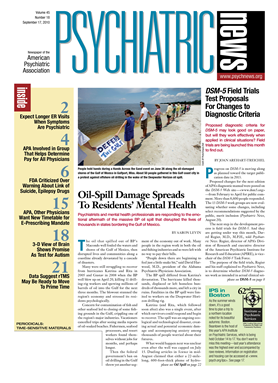The global economic crisis that took hold in 2007 sent shock-waves across all sectors of our economy. As the U.S. banking system teetered on the brink of collapse, the reverberations were felt far and wide, and in one of the most devastating consequences of the crisis, millions of Americans lost their health insurance and were left with no means to pay medical and pharmacy bills. Faced with bankruptcy and foreclosure, many families neglected much needed medical care as a way to save some money.
The country's troubling financial situation over the last few years highlighted for me that one of the most difficult aspects of residency is learning to practice and prescribe in a cost-effective manner. We physicians in training have to strike a balance between expanding our knowledge base and experience with different medication classes and the cost-effectiveness of the medication choices we make.
Such a balance can be challenging to accomplish while training in academic medical centers, in large part because a majority of residents are shielded from direct involvement with managed-care-driven pharmacy policies and pay-for-performance programs that reward cost-effectiveness of medical practice.
Psychiatrists differ from most other specialists in that we generally order fewer and less-expensive laboratory and imaging tests. However, the medications we prescribe are often quite expensive and frequently indicated for long-term use. In addition, many health plans have limited coverage for mental health and substance use disorders, which increases out-of-pocket costs for our patients.
As a resident, I was fortunate to have worked in clinics and under supervisors who encouraged cost consciousness. I also worked with drug formularies that were aimed at cost containment. In my opinion, the launch of the $4 generic prescription program was one of the most important health care events of the last several years. In 2006, Wal-Mart began filling prescriptions for certain drugs for $4 for up to a 30-day supply. This triggered a price war that led to sharp declines in the price of most generics and to similar programs being offered by other retail giants.
Currently, there are at least 15 psychotropic medications offered under Wal-Mart's $4 generic plan. The list contains antidepressants, antipsychotics, mood stabilizers, and anxiolytics. Although some drugs on the list belong to an older generation of psychotropic drugs, their efficacy and safety data are frequently comparable to those for newer drugs. In addition to gaining experience with medication cost containment, I was able to gain more knowledge and experience with the older generation of psychiatric drugs.
Most patients are not aware of the generic names of the drugs they are prescribed, thus it is important to keep a list of the different psychotropic drugs that are available on the major discounted prescription plans, such as those offered by Wal-Mart and its competitors. I usually print a list of the retailers/pharmacy Web sites for reference and to give to patients. Patients need to know drugs' generic names since pharmacy benefit managers often change companies that supply the generics as part of price competition. I recommend that patients shop around since prices and medication availability can vary across retailers and pharmacies.
It is also important to remember that the $4 prices are for certain doses and a fixed quantity. If you are prescribing a higher dose and/or larger quantity, patients may have to pay in multiples of the basic price. Contrary to the general notion, even patients with pharmacy-benefit plans can in some programs take advantage of generic substitutions and the $4 prescription plans.
One task for physicians, however, is to instill confidence in patients regarding generics. We have to reassure patients that generics contain the same active ingredients as the brand-name drug, are bio-equivalent to the brand-name drug, and are manufactured under the same strict standards the Food and Drug Administration applies to all medications sold in the United States.
In addition, strategies such as pill splitting, 90-day mail order supplies, and prescribing limited drug quantities for new prescriptions can also help save valuable health care dollars for our patients.
According to a new analysis conducted by IMS Health and commissioned by the Generic Pharmaceutical Association, prescription of generic medicines saved the U.S. health care system more than $734 billion over the decade from 1999 to 2008, with approximately $121 billion in savings in 2008 alone. Next to consumers, physicians are the ultimate stakeholders in health care policy and reform. With that comes a duty to deliver high-quality care in a health care system that is affordable, sustainable, and accessible by all.


